Abstract
A strain of Aspergillus fumigatus Fresenius, isolated from spoiled hay, converts melilotic acid (o-hydroxyphenylpropionic acid) and o-coumaric acid into 4-hydroxycoumarin and dicoumarol. The sequence is shown to be melilotic acid (I) [Formula: see text] coumaric acid (IV) [Formula: see text] β-hydroxymelilotic acid (II) [Formula: see text] β-oxomelilotic acid (III) [Formula: see text] 4-hydroxycoumarin (VI), on the basis of (1) studies on the formation of postulated intermediates, (2) experiments with isotopically labelled materials and (3) sequential enzyme induction. In the presence of semicarbazide, o-coumaraldehyde is formed from o-coumaric acid: there is no evidence, however, that this lies on the normal metabolic pathway.
Full text
PDF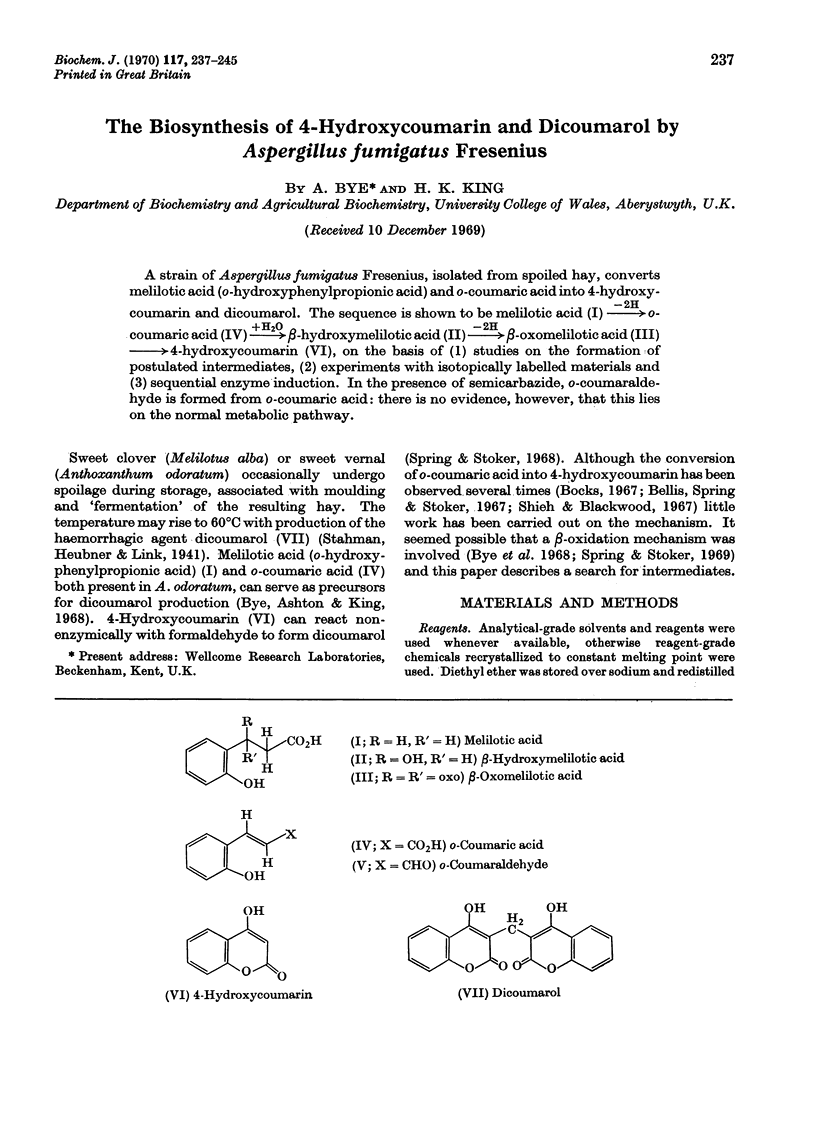
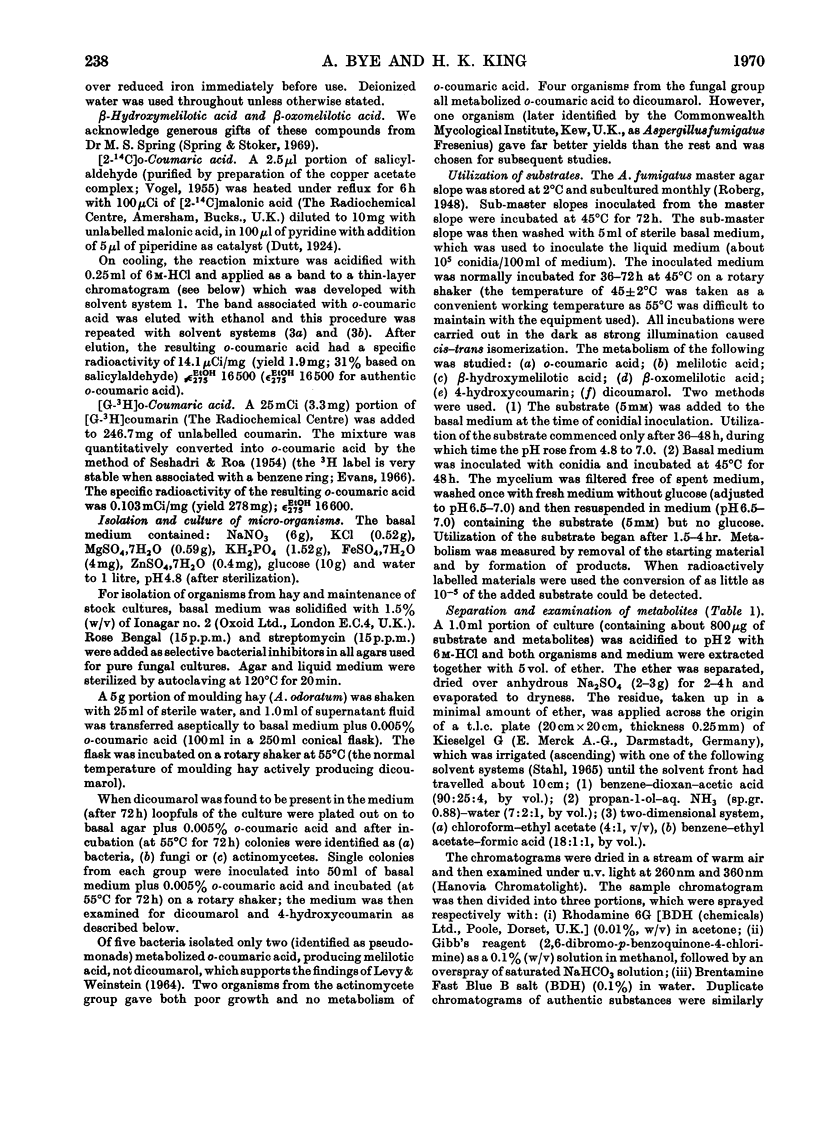
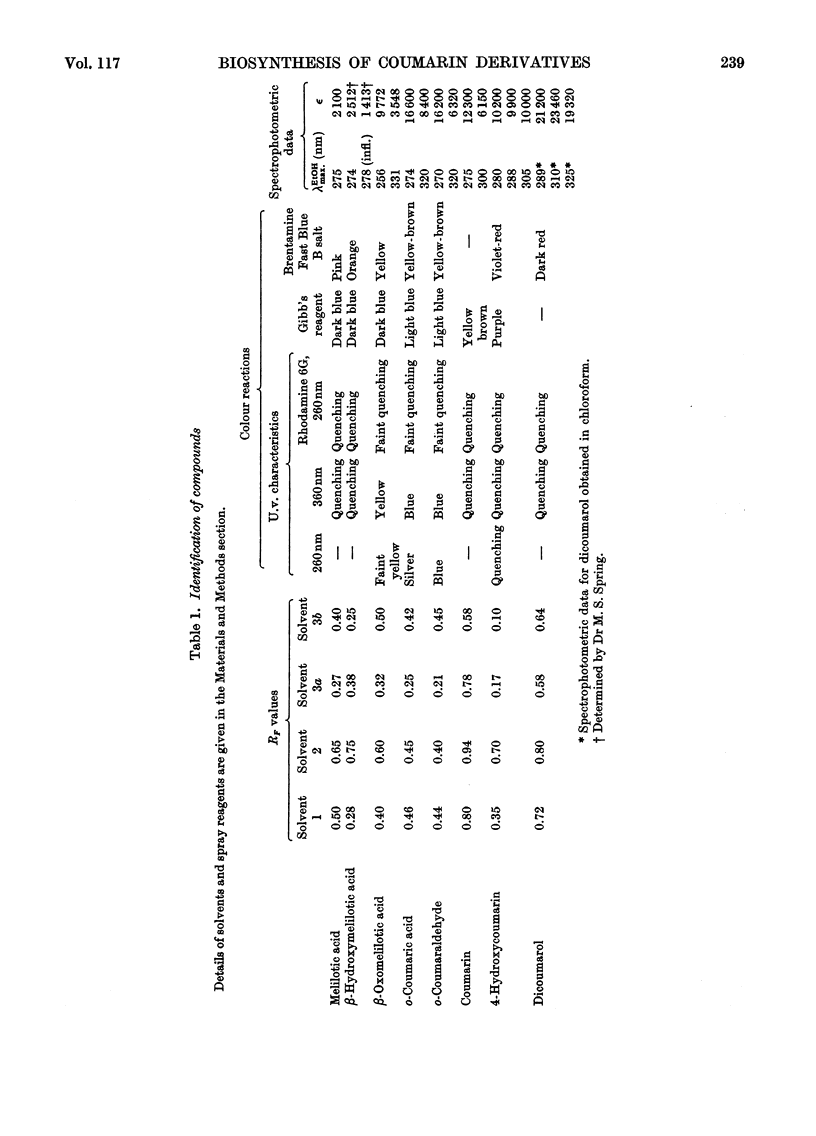
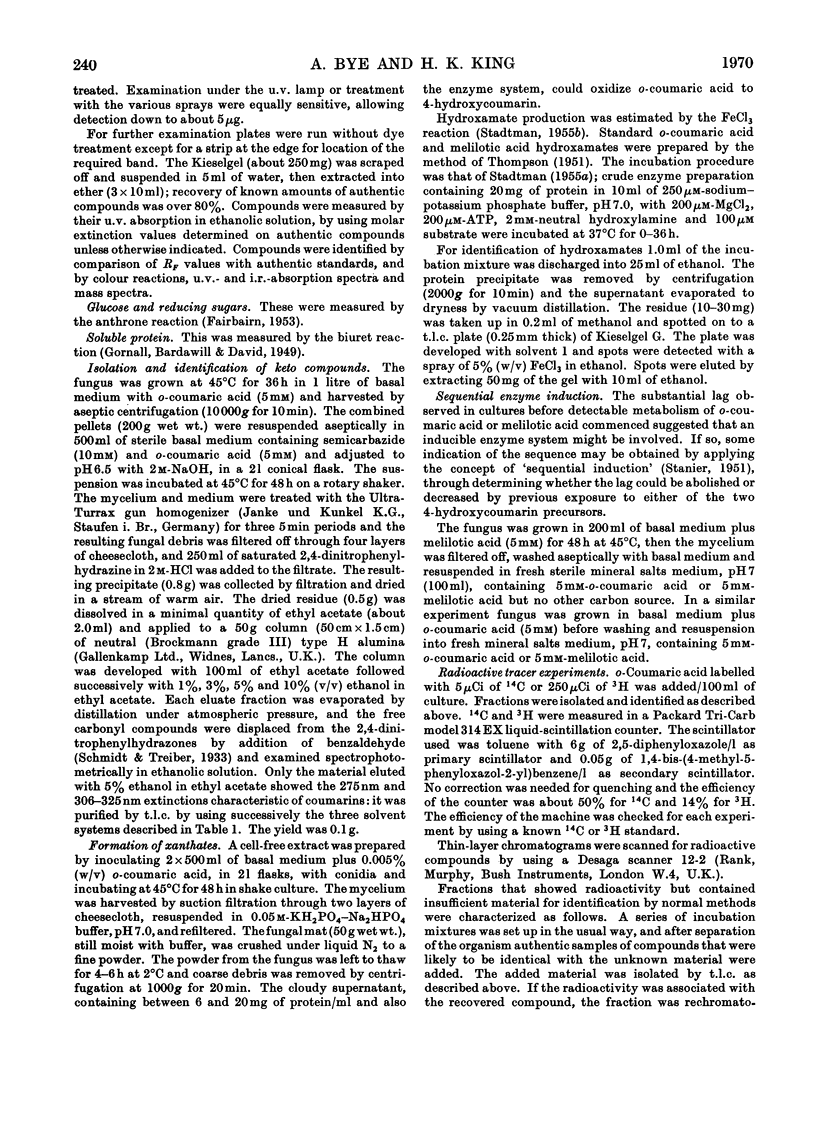

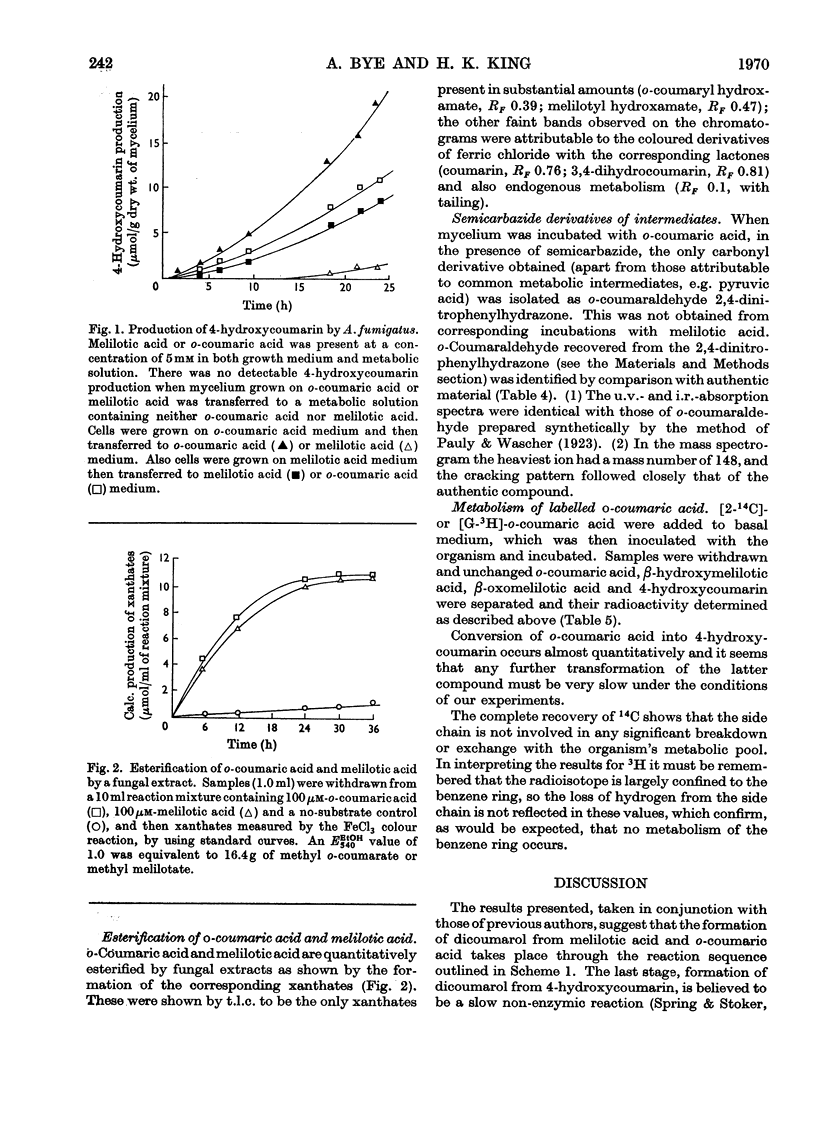
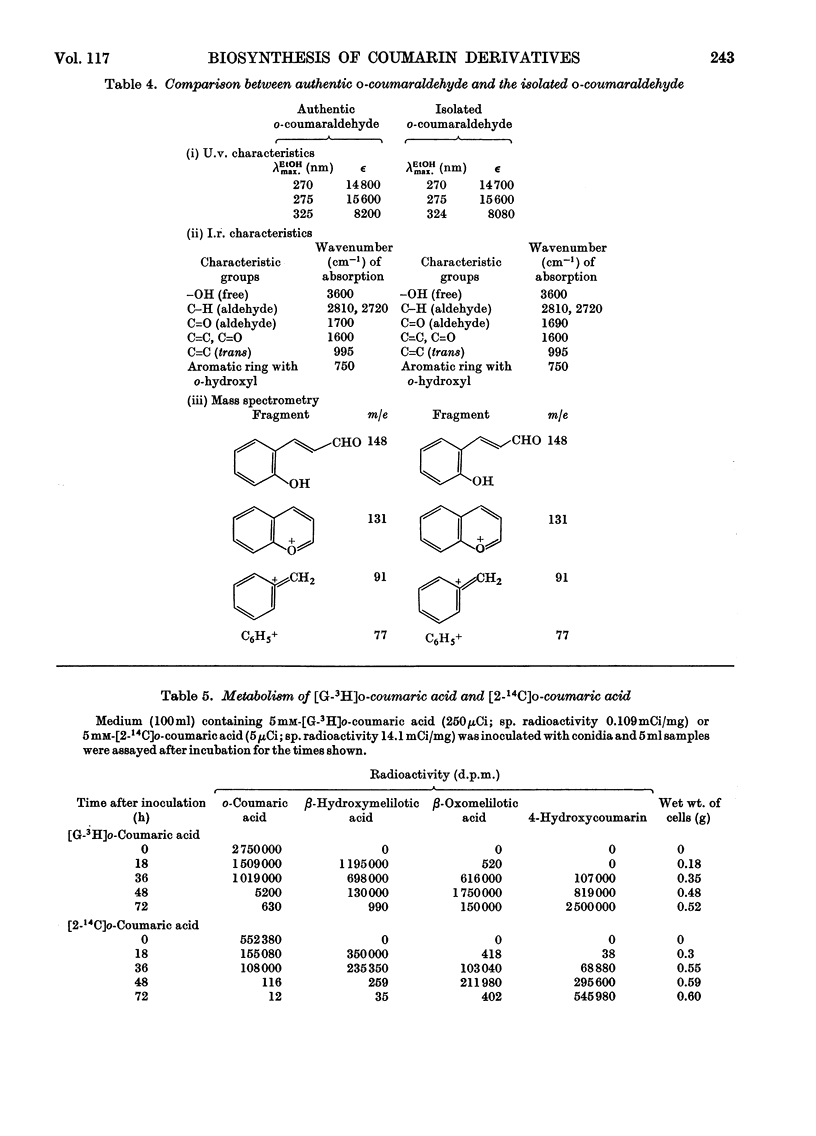
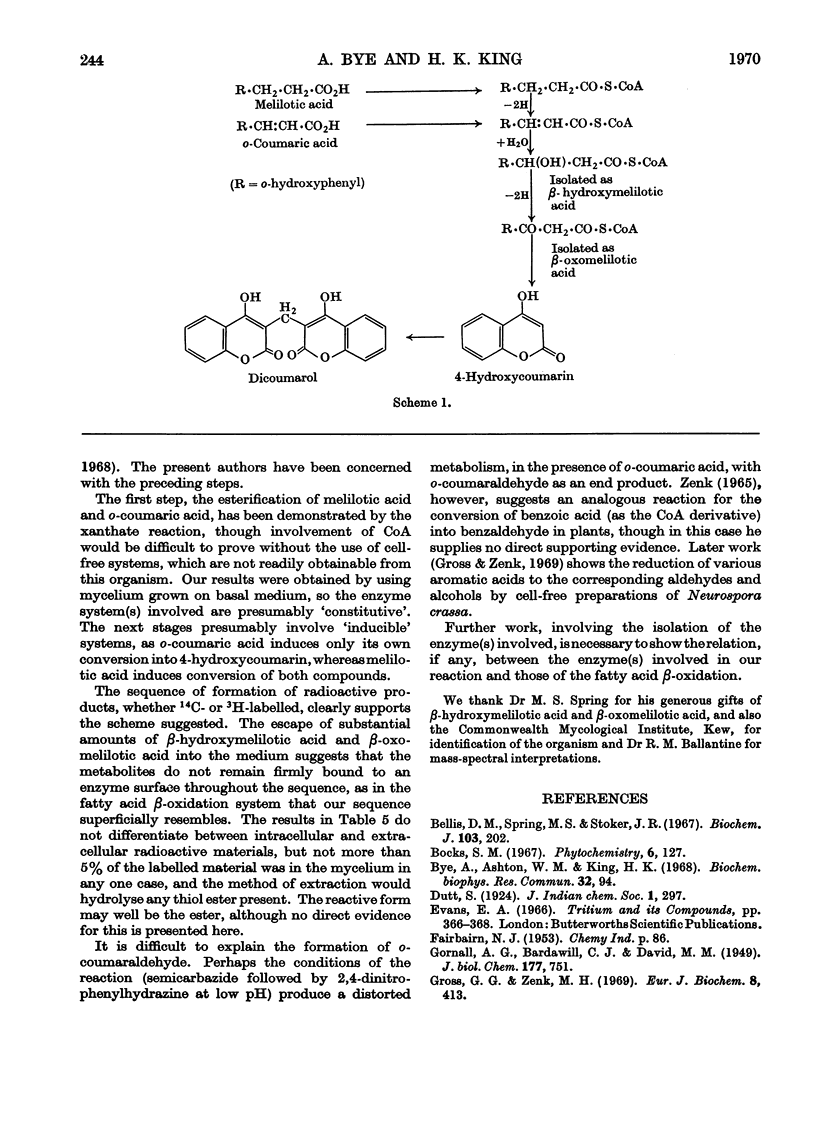
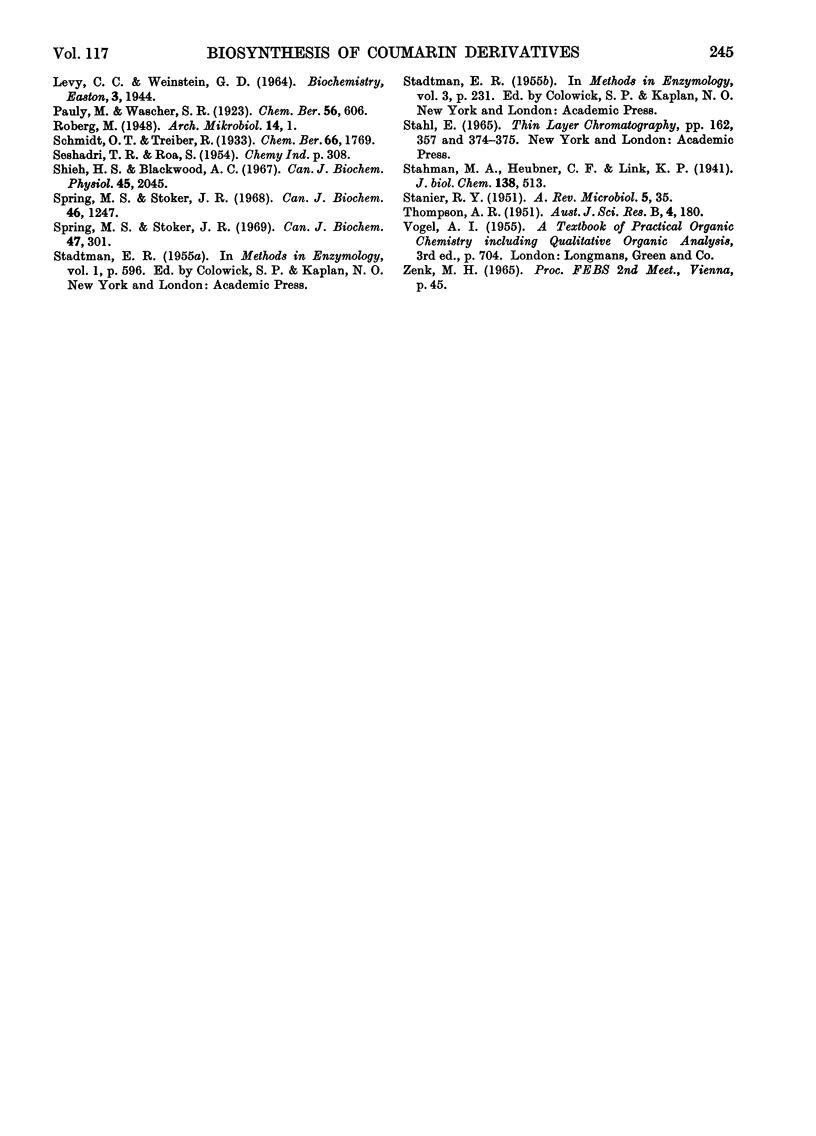
Selected References
These references are in PubMed. This may not be the complete list of references from this article.
- Bellis D. M., Spring M. S., Stoker J. R. The biosynthesis of dicoumarol. Biochem J. 1967 Apr;103(1):202–206. doi: 10.1042/bj1030202. [DOI] [PMC free article] [PubMed] [Google Scholar]
- Gross G. G., Zenk M. H. Reduktion aromatischer Säuren zu Aldehyden und Alkoholen im zellfreien system. 1. Reinigung und Eigenschaften von Aryl-Aldehyd: NADP-Oxidoreduktase aus Neurospora crassa. Eur J Biochem. 1969 Apr;8(3):413–419. doi: 10.1111/j.1432-1033.1969.tb00543.x. [DOI] [PubMed] [Google Scholar]
- LEVY C. C., WEINSTEIN G. D. THE METABOLISM OF COUMARIN BY A MICROORGANISM. II. THE REDUCTION OF O-COUMARIC ACID TO MELILOTIC ACID. Biochemistry. 1964 Dec;3:1944–1947. doi: 10.1021/bi00900a027. [DOI] [PubMed] [Google Scholar]
- STANIER R. Y. Enzymatic adaptation in bacteria. Annu Rev Microbiol. 1951;5:35–56. doi: 10.1146/annurev.mi.05.100151.000343. [DOI] [PubMed] [Google Scholar]
- Shieh H. S., Blackwood A. C. Conversion of o-coumaric acid to 4-hydroxycoumarin by Fusarium sp. Can J Biochem. 1967 Dec;45(12):2045–2046. doi: 10.1139/o67-237. [DOI] [PubMed] [Google Scholar]
- Spring M. S., Stoker J. R. Dicoumarol biosynthesis: origin of the methylene bridge. Can J Biochem. 1968 Oct;46(10):1247–1251. doi: 10.1139/o68-187. [DOI] [PubMed] [Google Scholar]
- Spring M. S., Stoker J. R. The biosynthesis of 4-hydroxycoumarin by Penicillium jenseni. Can J Biochem. 1969 Mar;47(3):301–304. doi: 10.1139/o69-046. [DOI] [PubMed] [Google Scholar]
- THOMPSON A. R. Separation of saturated mono-hydroxamic acids by partition chromatography on paper. Aust J Sci Res B. 1951 May;4(2):180–186. doi: 10.1071/bi9510180. [DOI] [PubMed] [Google Scholar]


